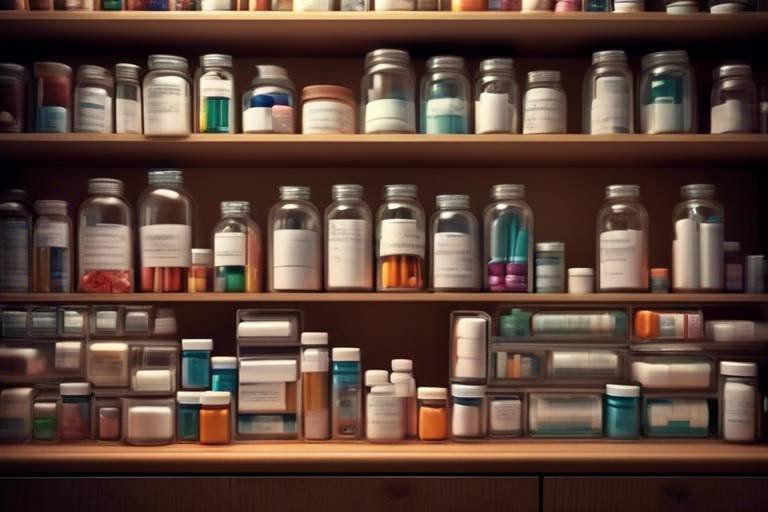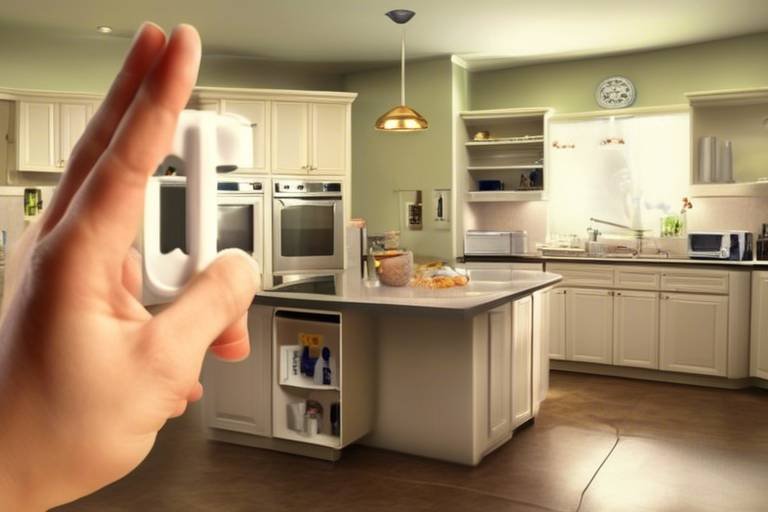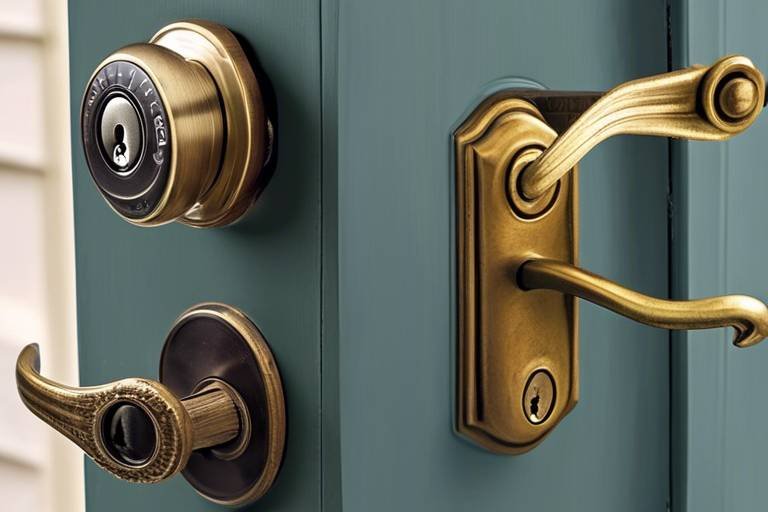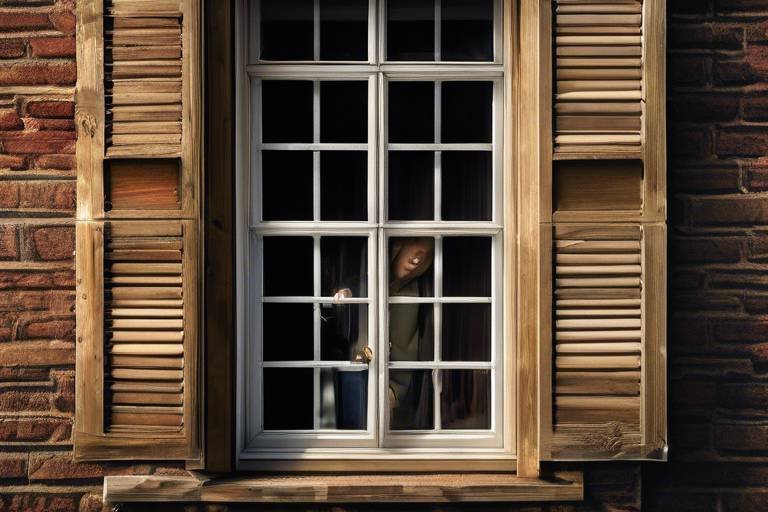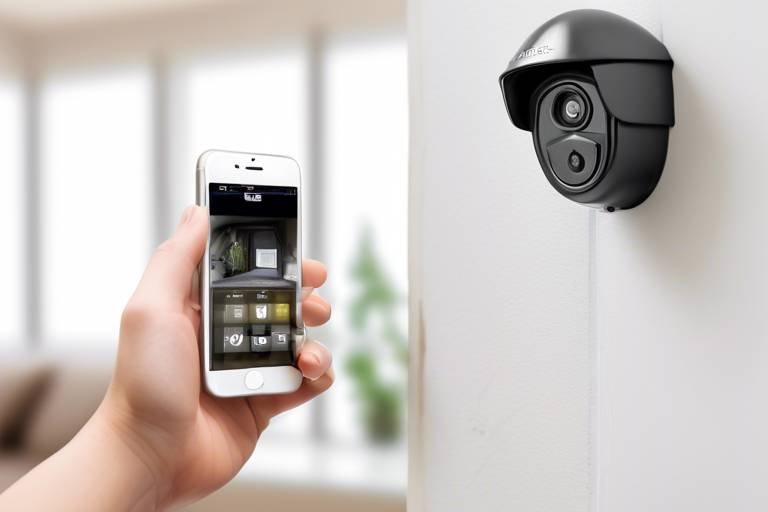Safe Storage of Medicines at Home
In our fast-paced world, it's easy to overlook the simple yet crucial task of storing medications safely at home. Whether it's a prescription for a chronic condition or over-the-counter remedies for those occasional colds, the way we store these medicines can significantly affect their efficacy and safety. Imagine a scenario where a child accidentally ingests a medication that was left unattended; the consequences can be dire. This article explores the importance of properly storing medications in your home, ensuring safety and efficacy while preventing accidental ingestion or misuse, especially among children and pets.
To ensure that your medications remain effective, it's vital to adhere to specific storage guidelines. These guidelines often include factors such as temperature control, humidity levels, and light exposure. For instance, most medications should be kept in a cool, dry place away from direct sunlight. High humidity can cause tablets to clump together, while exposure to light can degrade their active ingredients. Always check the medication's packaging for specific instructions, and remember that proper storage not only extends the life of your medications but also safeguards your health.
Many people unknowingly make mistakes when it comes to storing their medications. One of the most common errors is keeping medications in the bathroom or kitchen. These areas often experience fluctuating temperatures and high humidity, which can compromise the integrity of the medicines. Instead, consider designating a cool, dry cabinet in a less humid area of your home. Another mistake is failing to keep medications in their original containers. These containers are designed to protect the contents from light and moisture and often contain important information about dosages and expiration dates. By avoiding these pitfalls, you can enhance the safety and effectiveness of your medications.
Temperature plays a crucial role in determining the potency of medications. For example, some medications are sensitive to heat and can lose their effectiveness if stored in a warm environment. Understanding the specific temperature requirements for different types of medications is essential. Here’s a quick look at how temperature can impact various medications:
| Medication Type | Recommended Storage Temperature |
|---|---|
| Room Temperature Medications | 20°C to 25°C (68°F to 77°F) |
| Refrigerated Medications | 2°C to 8°C (36°F to 46°F) |
Room temperature medications are the most common. They include many oral tablets and capsules. For optimal preservation, store them in a stable environment, away from extreme temperatures. A bedroom or a dedicated medicine cabinet can be ideal locations. Always ensure that the area is well-ventilated and not subject to direct sunlight.
On the other hand, some medications require refrigeration to maintain their efficacy. These can include certain antibiotics, insulin, and other biological products. It’s crucial to keep these medications at consistent temperatures. Avoid placing them in the freezer, as freezing can render them ineffective. Instead, use a thermometer to monitor the fridge temperature regularly and store these medications in the main body of the fridge, not the door, where temperatures fluctuate more.
When it comes to storing medications, especially if you have children or pets, childproofing is a must. Consider using locks on cabinets where medications are stored. High shelves can also be a great deterrent, but remember that it's not just about keeping them out of reach. Proper labeling is equally important. Use clear labels that indicate the contents and any safety warnings. This way, even if a curious child gets a hold of the medication, they can understand the risks involved. After all, prevention is always better than cure!
Proper disposal of medications is just as important as their storage. Expired or unused medications can pose risks, not only to humans but also to the environment. Flushing them down the toilet or throwing them in the trash can lead to contamination of water sources and harm wildlife. Instead, look for local take-back programs or events that allow you to dispose of medications safely.
Here are some best practices for disposing of medications:
- Participate in medication take-back events organized by local pharmacies or community organizations.
- Return unused medications to your pharmacy, if they offer this service.
- For household trash disposal, mix medications with an undesirable substance like used coffee grounds or kitty litter, seal them in a bag, and throw them away.
Improper medication disposal can have devastating effects on our environment. Contaminants can seep into our water supply, posing risks to aquatic life and potentially affecting human health. By following responsible disposal practices, we can mitigate these risks. Always remember, what we do with our medications doesn't just affect us; it impacts the planet as well.
Q: How should I store liquid medications?
A: Liquid medications should be stored upright in a cool, dry place, away from light. Always check the label for specific instructions.
Q: Can I store medications in the refrigerator?
A: Only certain medications are meant to be refrigerated. Always refer to the medication guide for storage instructions.
Q: What should I do with expired medications?
A: Expired medications should be disposed of properly through take-back programs or by following safe disposal methods.
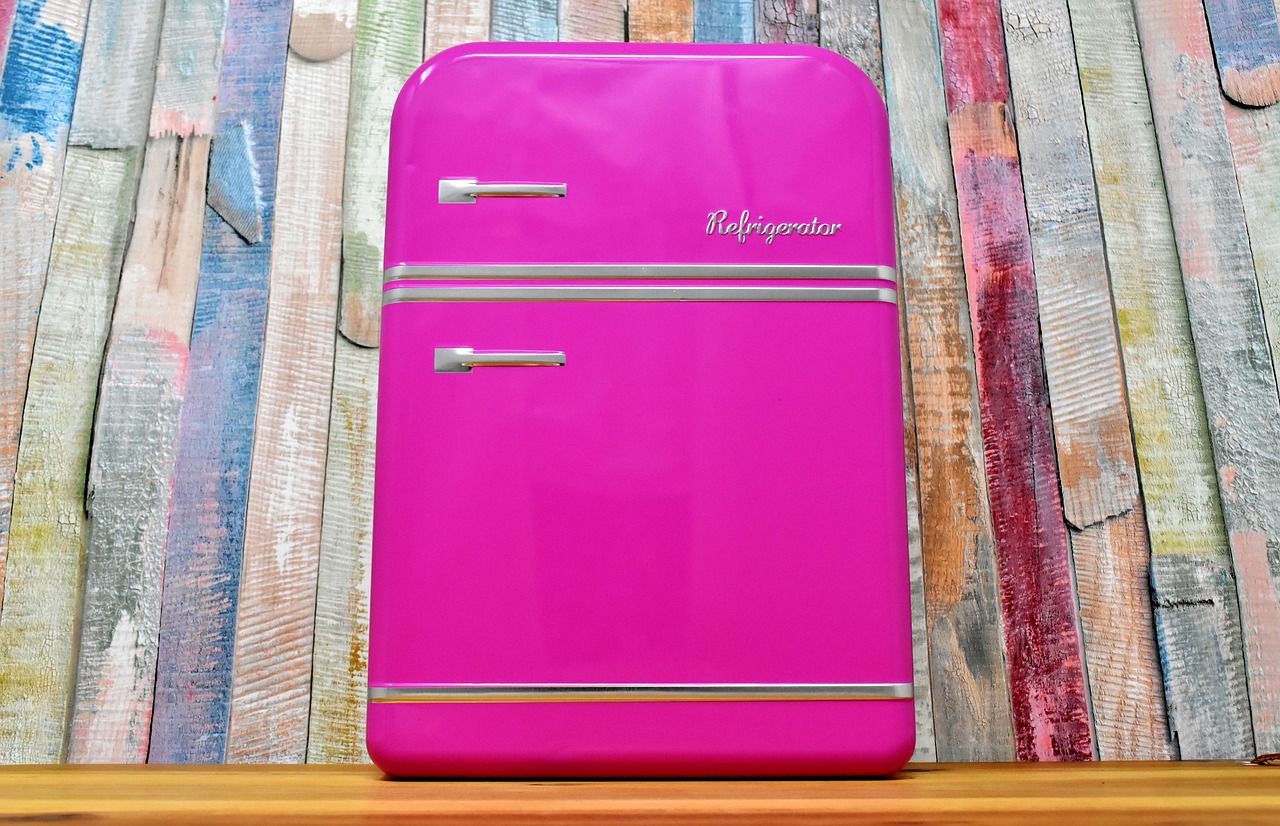
Understanding Medication Storage Guidelines
When it comes to storing medications, understanding the guidelines is crucial for ensuring their safety and effectiveness. Proper storage can mean the difference between a medication that works as intended and one that might be less effective or even harmful. One of the first things to consider is temperature control. Most medications need to be stored at specific temperatures to maintain their potency. For instance, many prescription drugs are best kept at room temperature, away from extreme heat or cold. This means avoiding places like the bathroom or kitchen, where temperature fluctuations are common due to showers and cooking.
Another important factor is humidity levels. Medications can be sensitive to moisture, which can lead to degradation. Keeping medications in a cool, dry place is essential. Ideally, the storage area should have a humidity level below 60%. For example, a bathroom cabinet, often seen as a convenient storage spot, can become humid and compromise the integrity of the medications stored there.
Moreover, light exposure can also affect medications. Some drugs are sensitive to light and should be stored in their original containers, which are often designed to protect them from light exposure. If you’re unsure, check the medication label or the accompanying patient information leaflet. It's also a good idea to keep medications in a child-proof container, which adds an extra layer of safety, especially in homes with children.
To summarize, here are the key storage guidelines to keep in mind:
- Temperature: Store at recommended temperatures, typically room temperature.
- Humidity: Keep in a dry place, ideally below 60% humidity.
- Light: Protect from direct sunlight; use original containers when possible.
By following these guidelines, you can ensure that your medications remain effective and safe for use. Remember, when in doubt, consult your pharmacist or healthcare provider for specific storage instructions related to your medications.
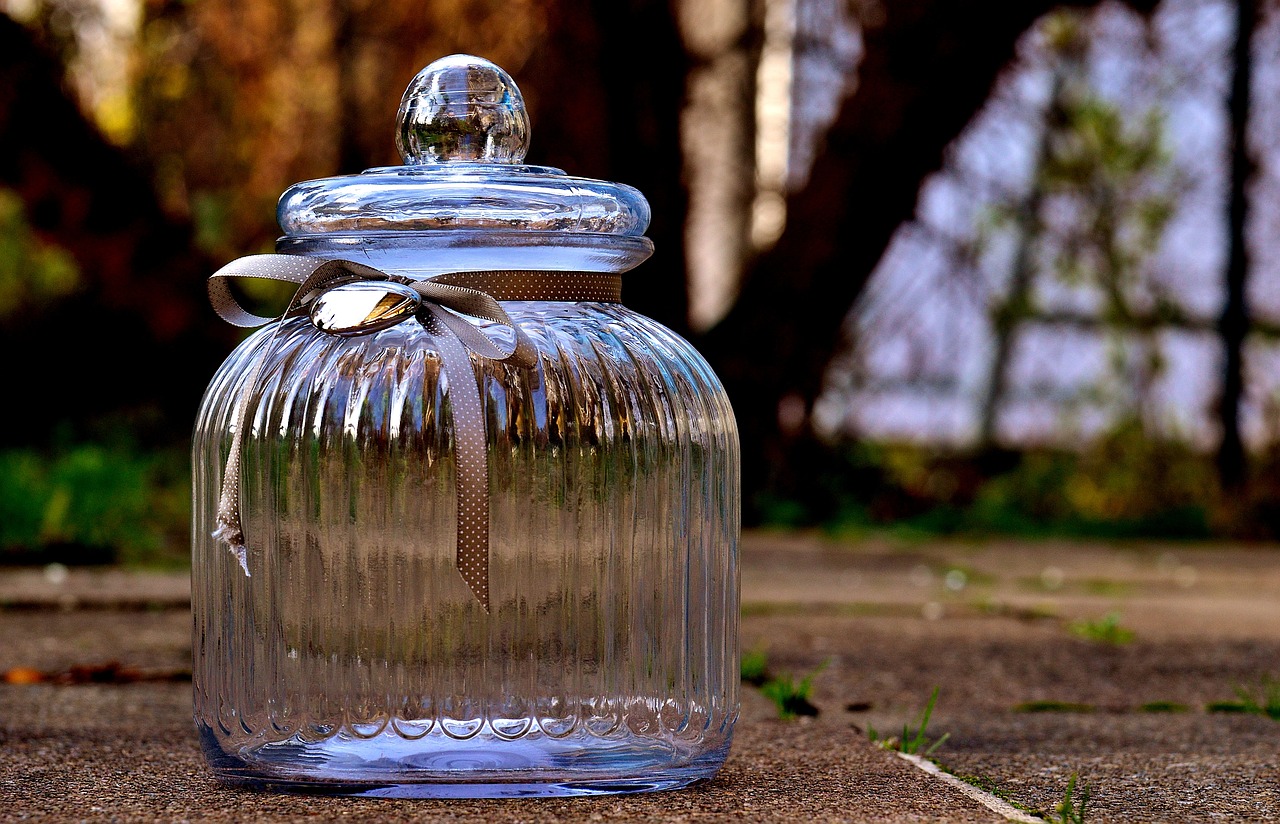
Common Mistakes in Medicine Storage
When it comes to storing medications, many people unknowingly make critical mistakes that can compromise the safety and effectiveness of their medicines. Have you ever thought about where you keep your pills? If it's in the bathroom cabinet or the kitchen drawer, you might want to reconsider! These areas are often subject to fluctuating temperatures and humidity, which can degrade medication quality. Instead, medications should be stored in a cool, dry place away from direct sunlight. Think of it like keeping your favorite chocolate away from heat; just as the chocolate melts and loses its appeal, medications can lose their potency if not stored properly.
Another common blunder is failing to check expiration dates. It's easy to forget about that half-empty bottle of cough syrup tucked away in the back of the cabinet. But expired medications can be not only ineffective but also potentially harmful. Just because a medicine is sitting there doesn’t mean it’s safe to use. Always take a few minutes to go through your medicine cabinet and dispose of any expired or unused medications responsibly. This simple act can prevent accidental ingestion, especially among curious children or pets.
Moreover, many people neglect the importance of keeping medications in their original containers. This is crucial not just for identification but also for maintaining safety instructions and dosage information. Imagine searching through a jumble of pills in a generic bottle; it could lead to confusion and mistakes. Original containers often have child-resistant caps that add an extra layer of safety, which is especially important if you have little ones running around.
Lastly, let’s talk about the importance of keeping medications out of reach of children. Storing medicines on high shelves or using lockable cabinets is a simple yet effective way to childproof your home. You wouldn’t leave a bottle of poison out in the open, would you? Medications should be treated with the same level of caution. Even if a medicine is safe for adults, it can be dangerous for children, so taking the time to ensure safe storage is crucial.
In summary, avoiding these common mistakes can significantly enhance the safety and efficacy of your medications. By being mindful of storage conditions, regularly checking expiration dates, keeping medications in their original containers, and ensuring they are out of reach of children, you can create a safer environment for everyone in your home.
- Q: What is the best place to store medications?
A: The best place to store medications is in a cool, dry place away from direct sunlight, such as a bedroom cabinet. - Q: How often should I check my medicine cabinet?
A: It's advisable to check your medicine cabinet at least once every six months to ensure medications are not expired. - Q: Can I keep medications in the bathroom?
A: It's not recommended due to humidity and temperature fluctuations; opt for a more stable environment. - Q: What should I do with expired medications?
A: Expired medications should be disposed of properly, preferably through take-back programs or by following local disposal guidelines.

Impact of Temperature on Medications
When it comes to medications, temperature isn't just a number on a thermometer; it's a crucial factor that can significantly affect the potency and effectiveness of your prescriptions and over-the-counter drugs. Imagine your medicine as a delicate flower; if the environment is too hot or too cold, it may wilt and lose its vitality. This is why understanding the impact of temperature on medications is essential for anyone looking to maintain their health.
Different medications have varying temperature requirements. Some are designed to be stored at room temperature, while others need to be kept in a refrigerator. Failing to adhere to these guidelines can lead to a decrease in efficacy, meaning that the medication may not work as intended when you need it the most. For instance, certain antibiotics and insulin must be stored at specific temperatures to remain effective.
To give you a clearer picture, let’s break down the temperature requirements for different types of medications:
| Type of Medication | Storage Temperature | Examples |
|---|---|---|
| Room Temperature Medications | 20°C to 25°C (68°F to 77°F) | Most oral tablets, capsules, and some creams |
| Refrigerated Medications | 2°C to 8°C (36°F to 46°F) | Insulin, certain vaccines, and some liquid antibiotics |
As you can see, the temperature at which you store your medications can determine their effectiveness. If you leave your medications in a hot car or near a heating vent, you might as well be throwing your money away. Likewise, freezing medications can cause them to become ineffective or even harmful. Always check the labels for specific storage instructions, and if in doubt, consult your pharmacist.
Moreover, temperature fluctuations can also occur during transport. If you're traveling, it's wise to carry your medications in a temperature-controlled bag. Think of it like protecting a precious gem; you wouldn't want it to be exposed to harsh conditions, right? By taking these precautions, you ensure that your medications remain safe and effective, ready to support your health when you need them.
In summary, maintaining the correct temperature for your medications is not just a guideline; it’s a necessity. By understanding and implementing proper storage practices, you can ensure that your medications remain potent and effective, safeguarding your health and well-being.
- What happens if I store my medications at the wrong temperature?
Storing medications at incorrect temperatures can lead to reduced effectiveness, potentially making them ineffective when you need them.
- Can I use medications that have been frozen?
Generally, medications that have been frozen should not be used, as freezing can alter their chemical structure and effectiveness.
- How can I keep my medications at the right temperature while traveling?
Use insulated bags or coolers to maintain the appropriate temperature for your medications while traveling.
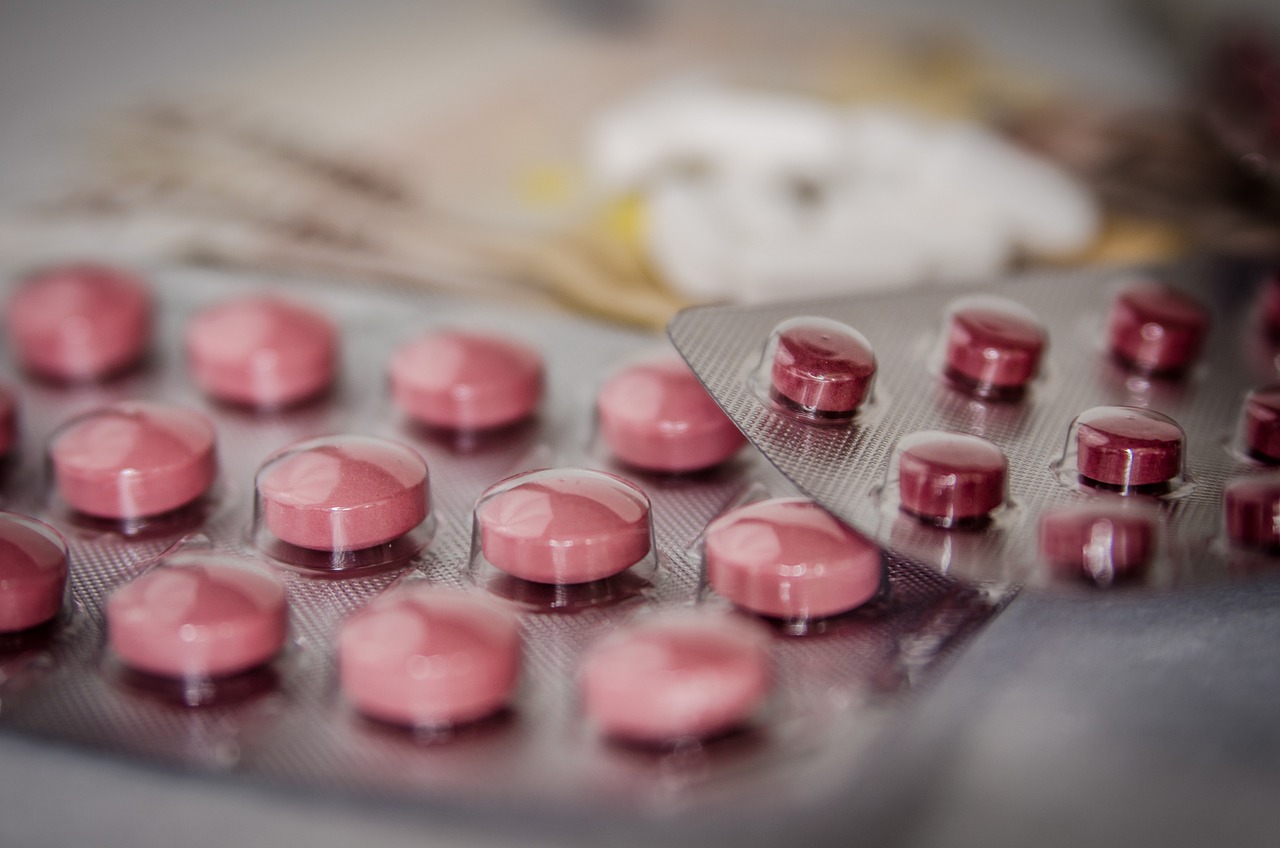
Room Temperature Medications
When it comes to storing medications, understanding which ones need to be kept at room temperature is crucial for maintaining their effectiveness. Room temperature is generally defined as a range of 68°F to 77°F (20°C to 25°C), but slight variations are acceptable. This means that your medications should be stored in a cool, dry place away from direct sunlight and moisture. Think of your medications as delicate flowers; just like they need the right environment to bloom, they need proper conditions to work effectively.
Some common medications that typically require room temperature storage include:
- Oral tablets and capsules
- Liquid medications that are not specified to be refrigerated
- Topical ointments and creams
- Some over-the-counter medications, such as pain relievers and antihistamines
It's important to keep in mind that storing medications in places like the bathroom or kitchen can be problematic. These areas are often subject to humidity and temperature fluctuations, which can degrade the quality of the drugs. Instead, consider storing them in a dedicated cabinet in a temperature-controlled environment. If you have children or pets, make sure this cabinet is out of reach or securely locked to prevent any accidental ingestion.
Additionally, always check the packaging for specific storage instructions. Some medications may have unique requirements that differ from the general guidelines. For example, certain antibiotics might need to be kept at a consistent temperature to remain effective. If you’re ever in doubt, consult your pharmacist or healthcare provider for advice.
In summary, keeping your room temperature medications in the right environment is essential for their efficacy and safety. By taking the time to understand these guidelines and implementing them, you can ensure that your medications remain effective and safe for use.
Q: What medications need to be refrigerated?
A: Medications such as insulin, some antibiotics, and certain biologics typically require refrigeration. Always check the label for specific instructions.
Q: Can I store medications in a bathroom cabinet?
A: It’s generally not recommended due to humidity and temperature changes. A cool, dry place away from moisture is ideal.
Q: How can I tell if my medication is still effective?
A: Check the expiration date on the packaging. If the medication has changed color, consistency, or smell, consult a pharmacist before using it.
Q: What should I do with expired medications?
A: Expired medications should be disposed of safely, following local guidelines. Many pharmacies offer take-back programs.
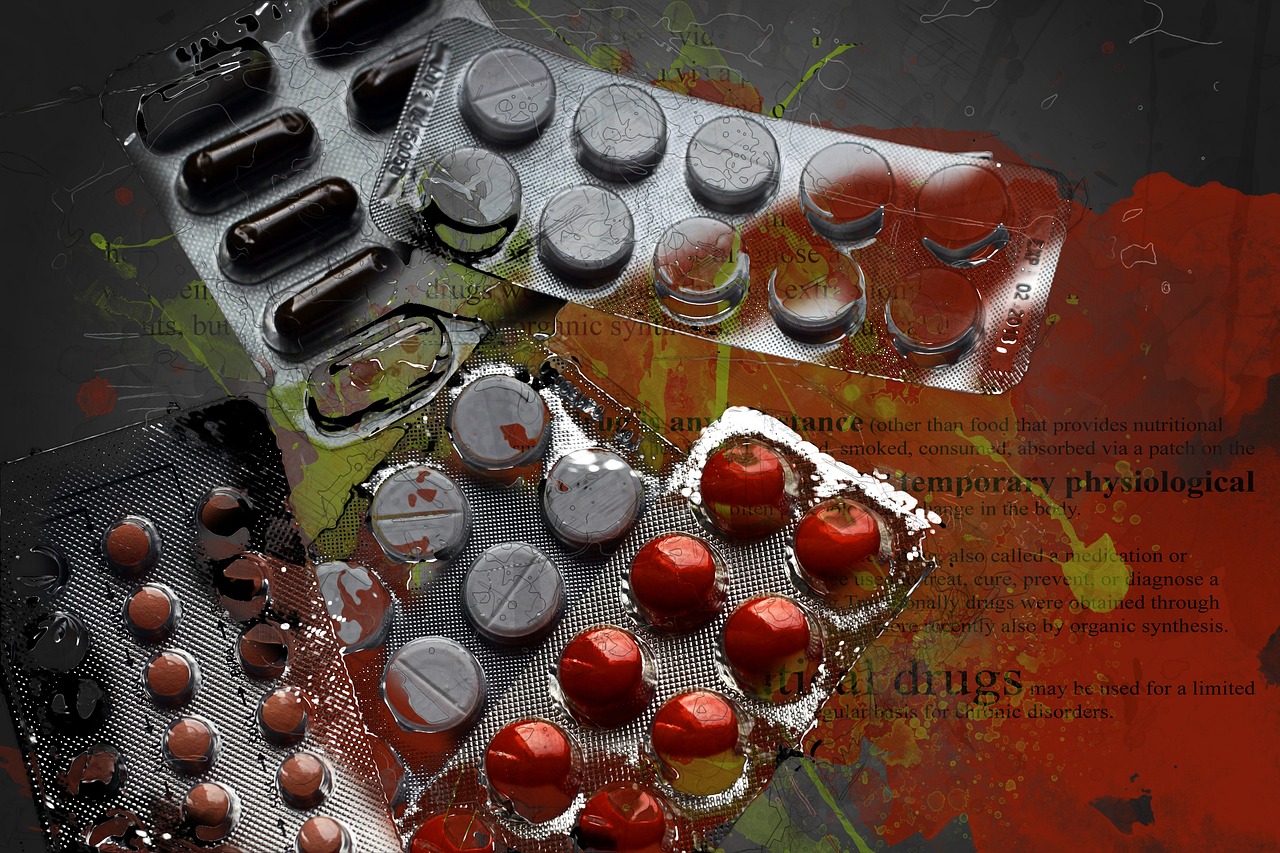
Refrigerated Medications
When it comes to storing medications that require refrigeration, attention to detail is crucial. These medications are often sensitive to temperature fluctuations, and improper storage can compromise their potency and effectiveness. It's essential to maintain a consistent temperature, typically between 36°F and 46°F (2°C to 8°C), to ensure that the medications remain effective.
Many people might not realize that not all medications can be stored in the refrigerator. For instance, while some insulin types and certain antibiotics need to be kept cold, others can be damaged by exposure to low temperatures. Therefore, always check the specific storage instructions provided with your medications. If you're ever in doubt, consult your pharmacist or healthcare provider for guidance.
Here are some key points to keep in mind when storing refrigerated medications:
- Keep medications in their original packaging: This helps to protect them from light and moisture, which can degrade their quality.
- Avoid the refrigerator door: The temperature in the door fluctuates more than in the main compartment, so it’s best to store medications in the back of the fridge where it’s cooler and more stable.
- Check the temperature regularly: Use a refrigerator thermometer to ensure that the temperature remains within the recommended range. If the power goes out, check the medications for any signs of spoilage.
Additionally, some medications may come with specific instructions regarding their storage conditions. For example, certain vaccines must be stored in a dedicated refrigerator that maintains a consistent temperature, while others can be stored in a regular refrigerator as long as they are kept away from temperature fluctuations.
To help you better understand the types of medications that may require refrigeration, here’s a simple table:
| Medication Type | Storage Requirements |
|---|---|
| Insulin | Refrigerate, do not freeze |
| Antibiotics (some) | Refrigerate, check specific instructions |
| Certain Vaccines | Dedicated refrigerator with stable temperature |
| Biologics | Refrigerate, avoid freezing |
In conclusion, storing refrigerated medications requires diligence and adherence to specific guidelines. By following the recommended practices, you can ensure that your medications remain safe and effective for their intended use. Remember, when it comes to your health, a little extra care can go a long way!
Q: Can I store refrigerated medications in a cooler if I lose power?
A: Yes, you can use a cooler with ice packs to keep medications at the right temperature temporarily. However, monitor the temperature closely.
Q: What should I do if I accidentally freeze my medication?
A: If a medication that should not be frozen has been exposed to freezing temperatures, it’s best to consult your pharmacist or healthcare provider before using it.
Q: How long can medications be stored in the refrigerator?
A: Medications should be used before their expiration date. Always check the medication packaging for specific storage instructions and expiration dates.
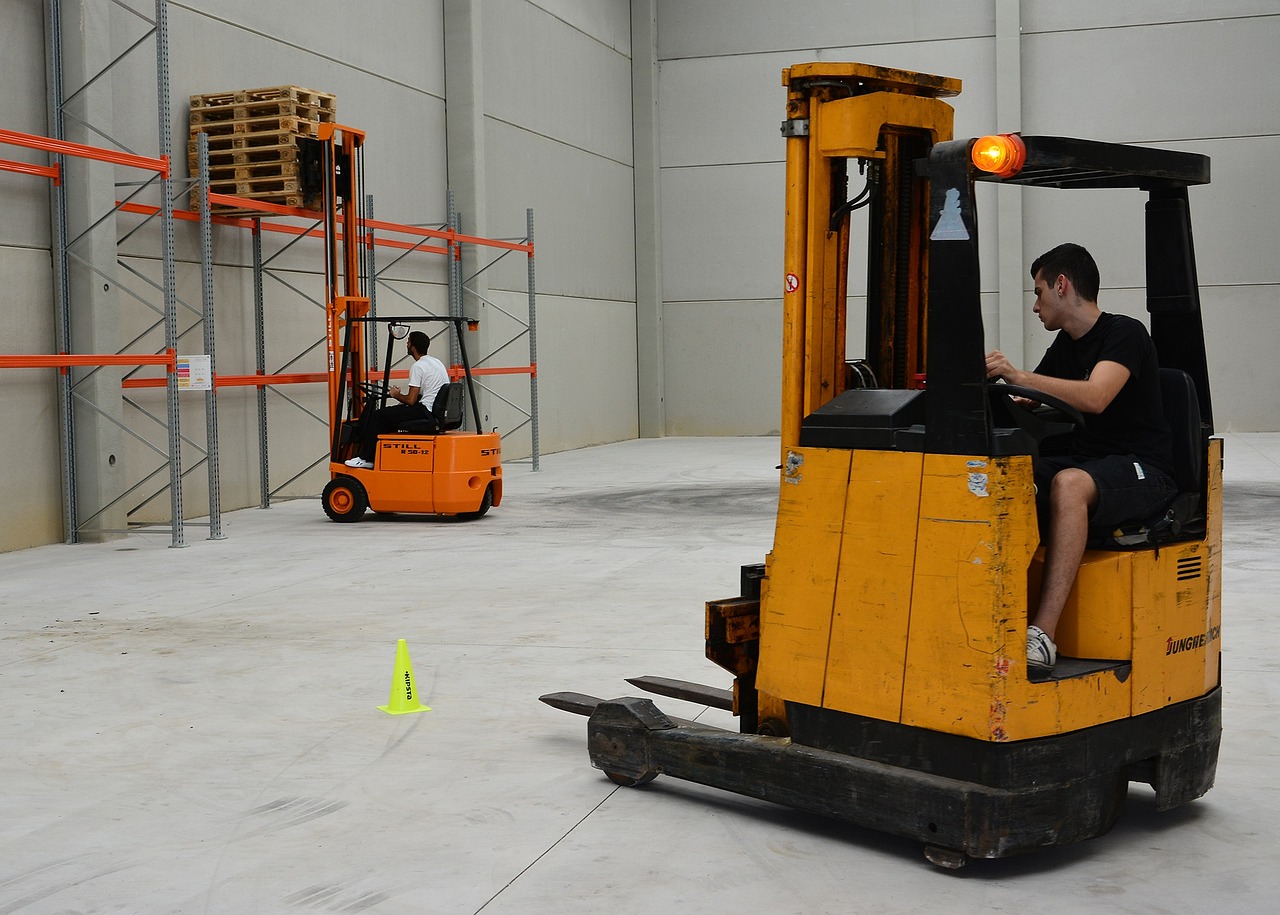
Childproofing Your Medicine Storage
When it comes to keeping your little ones safe, is an absolute must. You might think that just placing your medications out of reach is enough, but the reality is a bit more complex. Children are naturally curious, and their adventurous spirit can lead them to explore places you’d never expect. So, how can you ensure that your medications remain out of their reach and out of their minds?
First and foremost, consider the location of your medicine cabinet. Ideally, it should be in a high, locked cabinet that is out of sight and out of reach. This adds an extra layer of security that prevents inquisitive hands from accessing potentially harmful substances. If you don’t have a lockable cabinet, you can use childproof locks on existing cabinets or drawers to keep medications securely stored.
It’s also important to think about labeling. Ensure that all medications are clearly labeled and stored in their original containers. This not only helps you keep track of what you have but also makes it more difficult for children to mistake medications for candy or other household items. If you have any over-the-counter medications, consider using child-resistant packaging whenever possible, as this can serve as an additional barrier against accidental ingestion.
Another effective strategy is to educate your children about the dangers of medications. Teaching them that medications are not toys and should never be touched without adult supervision can go a long way. Use analogies that they can relate to; for example, you might say that just like they wouldn’t play with sharp objects or hot stoves, they should never play with medicines.
Furthermore, consider using medication reminders or schedules that can help you manage doses effectively. This way, you can avoid leaving medications out on counters or tables where children can easily grab them. Keeping a routine not only helps you stay organized but also minimizes the chances of leaving medications unattended.
Finally, it’s wise to periodically review your medicine storage practices. As your children grow, their capabilities and curiosity will change, so what worked when they were toddlers may not be sufficient as they enter their school years. Regularly reassess your storage solutions to ensure they remain effective.
In summary, childproofing your medicine storage is not just about hiding things away; it’s about creating a comprehensive safety strategy that includes secure storage, clear labeling, education, and regular reviews. By taking these steps, you can significantly reduce the risk of accidental ingestion and help keep your children safe from harm.
- What should I do if my child accidentally ingests medication?
Call your local poison control center immediately or seek medical help. - How can I safely store medications if I don’t have a locked cabinet?
Use childproof locks on cabinets and store medications on high shelves that are out of reach. - Are there any medications that are particularly dangerous for children?
Yes, medications such as pain relievers, antidepressants, and heart medications can be particularly harmful. Always keep these secured.
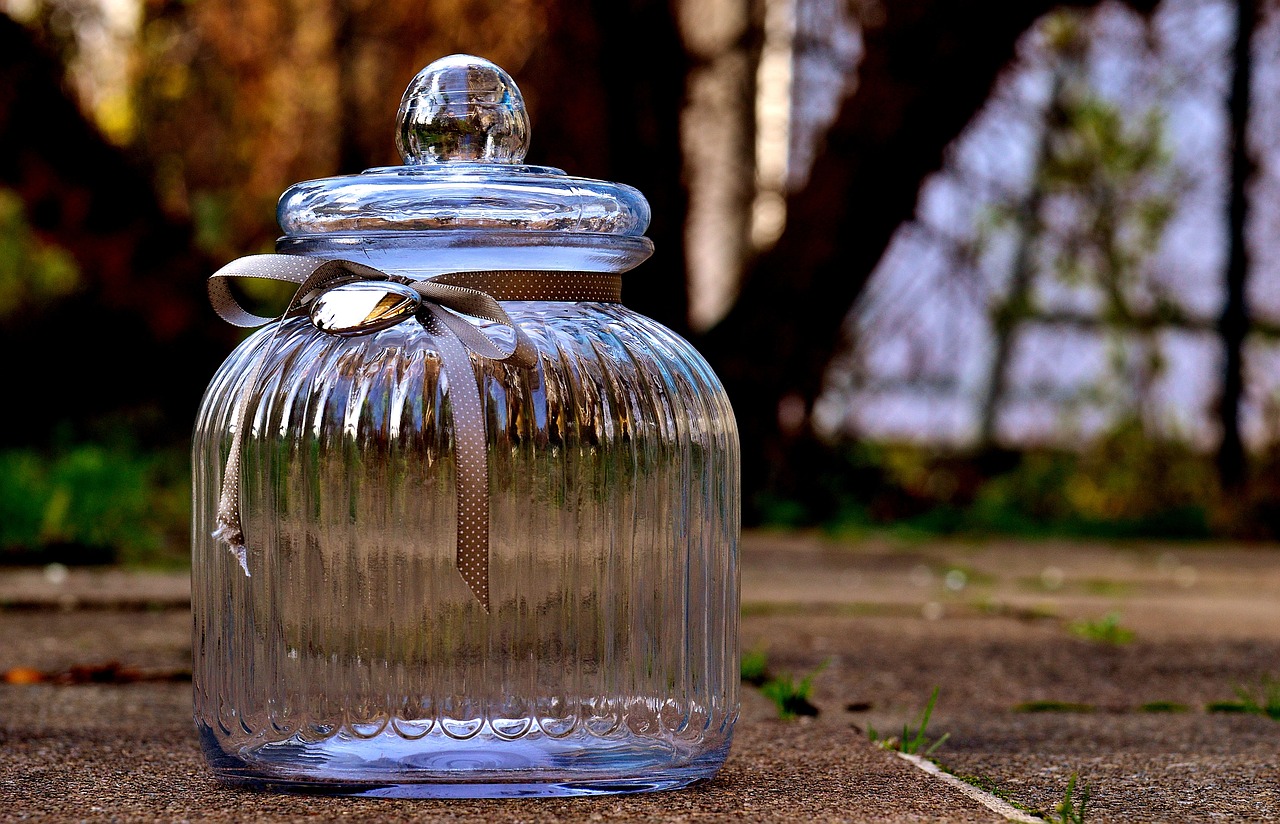
Disposing of Unused or Expired Medications
When it comes to medications, the mantra should be "out of sight, out of mind" - but this doesn't just apply to keeping them away from curious little hands or paws. It's equally crucial to consider how to responsibly dispose of unused or expired medications. Why is this so important, you ask? Well, improper disposal can lead to environmental contamination, accidental ingestion, or misuse, which can have serious consequences for both humans and wildlife.
First and foremost, you should always check the expiration dates on your medications. Just like milk, medications can spoil! Taking expired medications can be ineffective or even dangerous. If you find yourself with a cabinet full of old prescriptions or leftover over-the-counter drugs, it’s time to take action. But don't just toss them in the trash or flush them down the toilet; that can lead to harmful chemicals entering our water supply. Instead, consider the following safe disposal methods:
- Medication Take-Back Programs: Many communities offer organized take-back events where you can drop off your unused medications safely. These programs ensure that the medications are disposed of correctly.
- Pharmacy Returns: Some pharmacies allow you to return unused medications. It's worth checking with your local pharmacy to see if they offer this service.
- Household Trash: If no other options are available, you can dispose of medications in the household trash. However, it’s essential to follow specific guidelines to minimize risks:
When disposing of medications in the trash, you should:
- Mix the medications with an unpalatable substance, like dirt, cat litter, or used coffee grounds.
- Place the mixture in a sealed plastic bag or container to prevent leakage.
- Throw the container in the household trash.
- Remove any personal information from prescription bottles or packaging before discarding them.
Now, let’s talk about the environmental impact. Did you know that improper disposal of medications can have dire consequences for wildlife? When medications enter the water supply, they can disrupt aquatic ecosystems, affecting everything from fish to frogs. This is why responsible disposal is not just about protecting our families; it's about safeguarding our planet.
In conclusion, disposing of unused or expired medications is a responsibility we all share. By following safe disposal methods, you can prevent potential harm to yourself, your loved ones, and the environment. Remember, a little bit of caution goes a long way in ensuring that our homes and planet remain safe and healthy.
Q: Can I throw away my medications in the regular trash?
A: Yes, but make sure to follow the guidelines for safe disposal, such as mixing them with an unpalatable substance and sealing them properly.
Q: What should I do if my community doesn’t have a take-back program?
A: If a take-back program isn't available, you can dispose of medications in the trash following the safe disposal methods mentioned above.
Q: Is it safe to flush medications down the toilet?
A: Flushing medications is generally not recommended unless the label specifically instructs you to do so, as it can lead to water contamination.
Q: How can I find out about local medication disposal events?
A: Check with your local pharmacy, health department, or community bulletin boards for information on upcoming take-back events.

Safe Disposal Methods
When it comes to disposing of medications, it's crucial to do it safely and responsibly. Many people might not realize that simply throwing medications in the trash or flushing them down the toilet can lead to serious environmental and health issues. So, what are the best practices for getting rid of unused or expired medications? Let's dive in!
One of the most effective ways to dispose of medications is to utilize drug take-back programs. These programs are often organized by local pharmacies, hospitals, or community organizations, allowing people to return their unused medications safely. Participating in these events not only ensures that medications are disposed of properly but also helps prevent them from falling into the wrong hands, particularly children or pets who might accidentally ingest them.
Another great option is to check if your pharmacy offers a medication take-back service. Many pharmacies have designated drop-off locations where you can bring your unwanted medications. This is a convenient and eco-friendly solution that helps keep our communities safe.
If you can't access a take-back program, you can still dispose of medications at home, but it requires a bit more caution. Here’s a simple guide to follow:
- Mix medications with unpalatable substances: Combine the medications with substances like dirt, cat litter, or used coffee grounds. This makes the mixture less appealing to children and pets.
- Seal the mixture: Place the mixture in a sealed plastic bag or container to prevent leakage.
- Throw it away: Dispose of the sealed container in your household trash.
It's important to note that certain medications, especially those that are hazardous or controlled substances, may have specific disposal instructions. Always check the label or consult a pharmacist if you're unsure about how to dispose of a particular medication.
Moreover, avoid flushing medications down the toilet unless the label specifically instructs you to do so. Flushing can lead to contamination of water supplies and harm aquatic life. The Environmental Protection Agency (EPA) provides guidelines on which medications should never be flushed, and it's wise to follow these recommendations.
In summary, safe disposal methods not only protect our health but also safeguard our environment. By utilizing take-back programs, following proper disposal techniques at home, and being aware of hazardous substances, we can all contribute to a safer and cleaner community. Remember, when in doubt, consult a professional. It’s better to be safe than sorry!

Environmental Considerations
When we think about the safe storage and disposal of medications, it’s crucial to also consider the environmental impact. Improper disposal of medications can lead to serious consequences, not just for our health but also for the ecosystems around us. Medications that are flushed down the toilet or thrown in the trash can leach into the water supply or soil, potentially harming wildlife and contaminating our drinking water. It’s a bit like tossing a pebble into a pond; the ripples extend far beyond the initial splash.
Many people are unaware that common medications, such as antibiotics and hormones, can disrupt aquatic ecosystems. Fish and other aquatic creatures can be affected by these chemicals, leading to changes in behavior and reproduction. For instance, studies have shown that estrogen from birth control pills can lead to male fish developing female characteristics, which can have devastating effects on fish populations. This is why it’s imperative to think twice about how we dispose of unused or expired medications.
To mitigate these risks, consider the following environmentally friendly practices for disposing of medications:
- Take-Back Programs: Many communities offer medication take-back programs where you can safely return unused medications. These programs ensure that the drugs are disposed of properly, reducing the risk of contamination.
- Disposal Events: Look out for local events dedicated to the safe disposal of medications. These events often provide a convenient way to get rid of unwanted drugs safely.
- Household Trash: If no other options are available, you can dispose of medications in your household trash, but it’s important to follow certain steps to minimize environmental impact. Mix the medications with an unpalatable substance (like dirt or cat litter), place the mixture in a sealed container, and throw it away. This makes it less likely that someone will accidentally ingest them.
Furthermore, it’s essential to educate ourselves and others about the environmental consequences of improper medication disposal. By spreading awareness, we can encourage more people to participate in safe disposal practices and protect our planet. Remember, every small action counts. Just as we wouldn’t want to pollute our local park or beach, we should also take care to protect our water sources and wildlife from the harmful effects of pharmaceuticals.
In summary, being mindful of how we store and dispose of medications can lead to a healthier home and a healthier planet. Let’s make a conscious effort to ensure that our actions today do not harm the environment tomorrow.
Q: What should I do if I have expired medications at home?
A: You should dispose of them safely using a medication take-back program or follow the guidelines for disposal in your household trash.
Q: Can I flush medications down the toilet?
A: Flushing medications is generally discouraged unless the label specifically states it is safe to do so. Flushing can lead to water contamination.
Q: How can I find a medication take-back program near me?
A: You can check with your local pharmacy, health department, or visit the DEA's website for information on take-back events and permanent collection sites.
Q: Are there any medications that are particularly harmful to the environment?
A: Yes, medications like antibiotics, hormones, and certain pain relievers can have significant negative impacts on wildlife and ecosystems if disposed of improperly.
Frequently Asked Questions
-
What is the best way to store my medications at home?
To ensure your medications remain effective, store them in a cool, dry place away from direct sunlight. Avoid locations like the bathroom or kitchen where temperature and humidity can fluctuate. A dedicated medicine cabinet is ideal, but make sure it's out of reach of children and pets!
-
Why should I avoid storing medications in the bathroom?
The bathroom is often humid and can experience temperature changes, which can degrade medications. Steam from showers and baths can compromise the integrity of pills and liquids, making them less effective. It's best to find a stable environment for your meds!
-
How can I make my medicine storage childproof?
To keep your little ones safe, consider using childproof locks on cabinets, placing medications on high shelves, and clearly labeling all containers. Additionally, educating older children about the dangers of medications can help prevent accidental ingestion.
-
What should I do with expired or unused medications?
It's crucial to dispose of expired or unused medications properly. You can take them to a drug take-back event or use a pharmacy return program. If those options aren’t available, you can mix them with an unpalatable substance (like dirt or cat litter) in a sealed bag and throw them in the trash.
-
Are there any environmental risks associated with improper medication disposal?
Absolutely! Flushing medications down the toilet or throwing them in the trash can lead to contamination of water sources and harm wildlife. Responsible disposal practices help protect our environment and ensure safety for all living creatures.
-
How can temperature affect my medications?
Temperature can significantly impact the potency of medications. Some need to be kept at room temperature, while others require refrigeration. Always check the storage instructions on the label to maintain their effectiveness and avoid any unwanted surprises!

